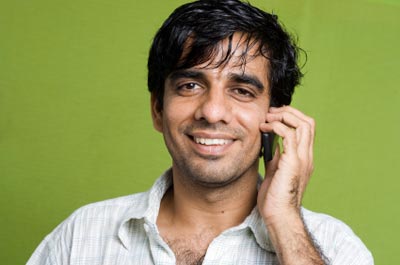The Languages of India

Todd: Nitya, in the U.S. we have many different parts of the country and people are very different. What about India? Are the people very different in different regions?
Nitya: Yeah, I like, I think that in India the different parts, they have totally different languages, that's sometimes it's a problem because somebody who comes for a travel, for traveling or something in the northern part of India, from South, it's really difficult for them to manage the language, because though are national language is Hindi, and also like, the constitutional national language is English, but still, I mean, India is really huge, people coming from South, there are some people like who do, who do understand Hindi to some extent, but there are many people who don't understand at all.
Todd: Really, they don't speak Hindi?
Nitya: Yeah, because we have 33 national languages. (Wow) so,
Todd: You have 33?
Nitya: 33, and like if you take on the whole, it's 345 or something
Todd: Man, that's incredible.
Nitya: Yeah, and I think that, I think that every child from India should be able to speak around two to three languages, basically.
Todd: What are the most common languages that people speak in India?
Nitya: I think Hindi, Guthratti, Punjabi, I think I cannot say common. Every state, every like, we have 27 states in India. Every state has it own language. Our general language.
Todd: 27 different general languages. (Yeah) That's what divides the country is the languages?
Nitya: No, it's divided by the states, I mean different states we call different parts of it, and also by the language. Yep.
Todd: Wow, that's pretty amazing. So you said Punjabi.
Nitya: Punjabi, Gujarati, Tamil, Malayalam. (Wow) Huge, yeah.
Todd: That's pretty amazing. How many languages do you speak?
Nitya: Six.
Todd: Six.
Nitya: Yep.
Todd: What do you speak?
Nitya: Ok, I can speak Hindi. I can speak Punjabi a little bit, and I can understand the whole of it all, and I can speak Tamil. I can speak Malayalam, because Malayalam is my mother's language. She's from southern part of India. My dad is from the north part of India and I speak Hindi. I understand Telugu, and I guess Marathi also a little bit.
Todd: Wow, and that's not even including English or Japanese.
Nitya: Yeah, OK, and then you include English and Japanese and that.
Todd: That's amazing. OK, well, thanks Nitya.
constitution
The constitutional national language is English.
A 'constitution' is a system of rules used to govern a country. We also use this word to describe the legal document where all of these rules are listed. In the example, the meaning is that English is the nationally recognized language, although there may be other languages used in the country. Notice the following:
- This law is written in the constitution.
- When was your national constitution written?
huge
India is really huge.
If something is 'huge,' it is really really big. Gigantic. Notice the following:
- Their new house is absolutely huge.
- What do you have in your suitcase? It's huge!
to some extent
There are some people who do understand Hindi to some extent.
In the example, 'to some extent' can be replaced with a little bit. If you understand or know about something to a certain extent you are not any expert, but you know something about the subject. Notice the following:
- She understood what the man was saying to some extent,
but decided to use a translator to understand everything.
- To some extent he wanted to look for a new job, but it
was just so much stress.
incredible
That's incredible.
Something that is unbelievable or amazing is 'incredible.' Notice the following:
- The size of the dog was incredible.
- It's incredible that you saw a monkey in the park.
divide
What divides the country is the languages?
To 'divide' something is to separate it into different parts. Notice the following:
- We will divide the money between the two of us.
- I divide my free time between my friends and family.
Vocabulary Quiz
incredible • divide


















